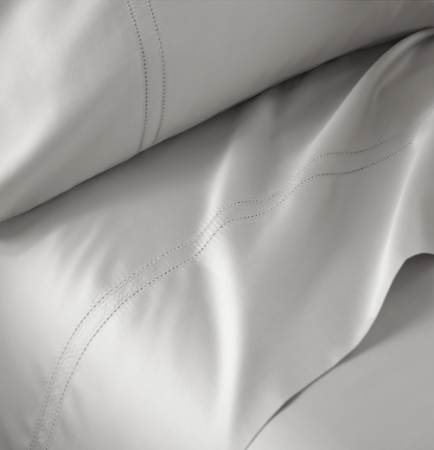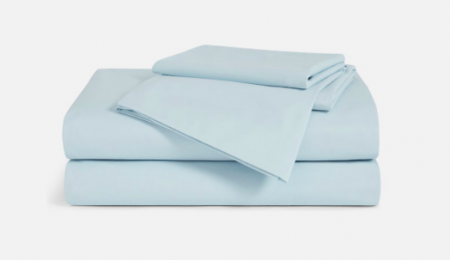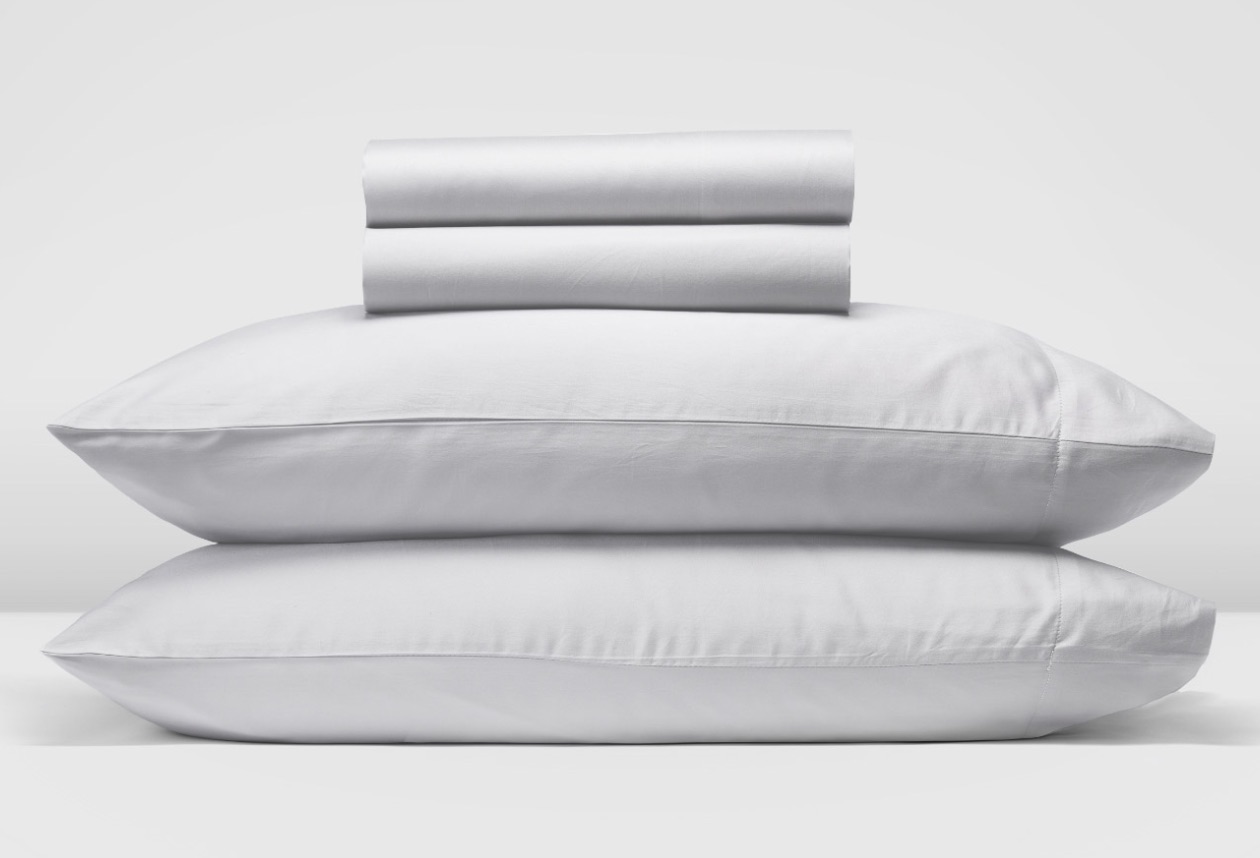How to Find the Right Egyptian Cotton Sheets
When shopping for Egyptian cotton sheets, it’s important to research the product in order to make an informed buying decision. Next, we’ll discuss some tips for finding the best sheets.
Authenticity
Unfortunately, it is not uncommon for vendors to mislabel bedding as “Egyptian Cotton”. In fact, studies have found that as many as 90 percent of premium cotton bedding products are mislabeled. Another study determined as many as 80 percent of fabric tags labeled as pure Egyptian cotton were actually crafted from cotton blends.
Price-point is a good indicator of Egyptian cotton authenticity. True Egyptian sheets are fairly expensive, and some cost upwards of $500. Sheet sets labeled “Egyptian cotton” with a lower price tag may be too good to be true.
Certifications can also be helpful. The 100% Egyptian Cotton certification from the Cotton Egypt Association is considered the gold star. Brands that openly display this credential on their website most likely sell authentic Egyptian cotton.
Additionally, take a close look at product tags; these should contain a full breakdown of all materials used. When buying online, ask for a photo of the tags if they are unavailable on the product page. Make sure to purchase sheets from a trusted manufacturer who offers a solid return policy and/or warranty on their sheets. A reputable vendor will have confidence in the durability and comfort of true Egyptian cotton sheets.
Thread Count
Thread count is a critical concern. Some Egyptian cotton sheet brands artificially inflate their thread count by counting each strand of a yarn fiber, as we mentioned above. Any thread counts above 600-800 should be researched thoroughly to ensure the count is accurate and not an exaggeration.
Some brands produce Egyptian cotton sheets with a very high thread-count. However, many brands with high thread counts are playing marketing games with their terminology. Soft sheet sets with lower thread counts are widely available – and for many sleepers, the difference between high and low thread counts is somewhat negotiable.
For Egyptian cotton sheets, the optimal thread count is 400-700; lower thread counts (200-300) can also be very comfortable if the yarn is single ply and it’s finely made.
Weave
Cotton fibers are woven together to make the fabric. There are four common weaves for Egyptian cotton sheets. The weave of sheets determines the feel and softness, as well as durability since some weaves can loosen over time or break yarn strands. These four weaves are described below:
- Percale: This common weave has one thread over and one thread under in a symmetrical pattern. These sheets have a crisp feel and a matte finish. They are also very durable.
- Sateen: This weave is three over and one under in pattern resulting in a heavier and smoother feeling fabric. It is softer but can pill more quickly than percale.
- Pinpoint: These weaves are made with two threads over and one thread under. Pinpoint has greater durability, but it does not feel very soft. Many compare it to the feel of dress shirt fabric.
- Twill: This weave features an offset pattern with differing thread counts over and under, resulting in a diagonal thread pattern. Twill is soft, fuzzy, and warm.
Color or Pattern
Many brands of high-quality Egyptian cotton sheets are available in a limited color selection. Traditional colors for Egyptian cotton are white and off-white or gray, and few brands offer patterned sheets.
Most brands offer a paler palette of neutrals. Since good quality Egyptian cotton sheets should outlast a comforter or duvet, sticking with neutrals is a good shopping strategy.
Those seeking richer colors to match their bedroom decor may prefer mercerized cotton, since this fabric holds dye with deeper colors and resists fading in the wash. Egyptian cotton sheets can be costly, so invest in a timeless style choice rather than a trend.
Other Considerations
Lastly, here are two more considerations for first-time Egyptian cotton shoppers.
Organically grown: Egyptian cotton can be organic or not. Organic cotton is grown with non-GMO seeds and no synthetic pesticides. The agricultural process for organic is low-impact on the environment. There are no toxic or persistent pesticides and fertilizers used, so it’s a healthier product.
Egyptian cotton sheets are costly already, organic certifications drive up the price-point even further. However, shoppers with sensitivities or health concerns – as well as eco-conscious individuals – may find organic Egyptian cotton is worth the extra money.
Return policy/warranty: There is a difference between a sleep trial, return policy, and warranty. A sleep trial allows customers to sleep on the sheets for a certain length of time to ensure they work well. Some return policies allow customers to sleep on the sheets and return if they are not satisfied. Other brands will only accept returns if the sheets are unused.
Warranties are different and relate to defects in the products such as stitching falling apart or other quality issues. Warranties are not about performance or satisfaction. Egyptian cotton sheets may or may not come with a warranty, but in most cases warranty coverage will not exceed five years.




